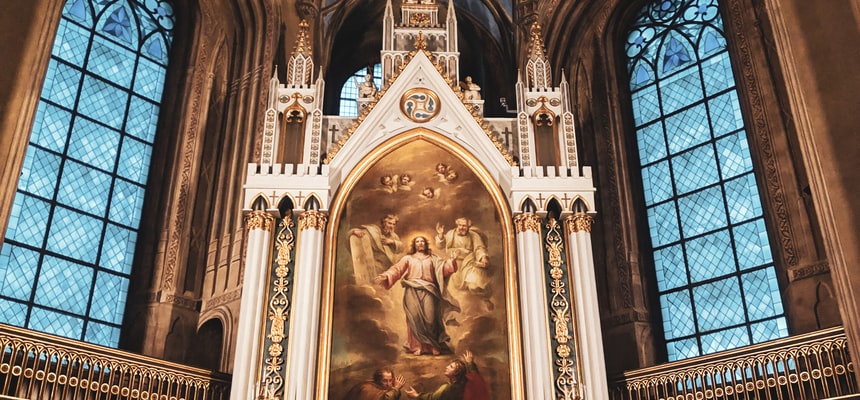
One of the outstanding papal reformers was Pope Nicholas II, Gerhard of Burgundy. Born between 990 and 995, he grew up near one of the chief reform-minded abbeys of France, Cluny. Certainly, he was exposed to the attitudes this abbey promoted.
As a young priest, Gerhard was a Canon in Liege, Belgium. Then, in his late middle age, he became bishop of Florence. With this new power, he worked to restore canonical life in many parishes. However, his new life was not going to be smooth.
In the summer of 1058, the sudden death of Pope Stephen IX was followed by the irregular election of Pope Benedict X. Cardinal Hildebrand, on a diplomatic mission to Germany, made his way to Florence to meet with Duke Godfrey of Spoleto. They decided that Gerhard should be the real next pope. In December of that year, the cardinals who were against Benedict X met in Siena and elected Gerhard. He took the name Nicholas II.
NICHOLAS TAKES CHARGE
Approaching Rome, Nicholas called for a synod to meet at Sutri. Nicholas made sure of the presence of Duke Godfrey and the imperial chancellor, Guibert of Parma. Then, he pronounced Benedict X deposed and excommunicated. Once reaching Rome, in early 1059, Nicholas gained military control of the city. In consequence, Benedict fled to Gerard of Galeria.
At the same time, for several years, Milan had been a hotbed of civil unrest. This was all due to a monk, Ariald, teaching against clerical marriage and simony. The priests and bishops were against the attempted reform. Both the clergy and the monk had gone to Pope Stephen asking for help. Stephen, a reformer, was sympathetic to Ariald. He had even sent envoys to assist in this reform, with little success. In 1059, Ariald returned to Rome and Nicholas II sent Peter Damian and Anselm of Lucca to Milan. Arguments died down and Archbishop Guido submitted to Rome by attending the Easter 1059 synod there. That was quick action for the new pope.
This was not a small synod. The 113 bishops who attended covered much ground. First, they passed a change in election procedure, allowing only cardinals to participate in the election of a pope. Aristocrats were no longer allowed, giving the Church independence from laity on this point. Second, they prohibited simony and lay investiture (laymen giving a cleric his spiritual power). Third, marriages and mistresses were forbidden among the clerics. Married clerics could no longer say Mass or hold Church benefices. Fourth, pilgrims were protected by papal order in their persons and belongings. Papal sanction was given to the Peace of God and Truce of God movements which were promoting religious reform. Lastly, the synod forced Berenger of Tours to renounce his teaching on the Eucharist. He taught that the host was merely symbolic and did not contain the Real Presence.
Meanwhile, the Muslims were holding Sicily and the southern part of the peninsula was occupied by Muslims and Normans. Nicholas wanted to retake Sicily for Christianity and saw the Normans as the perfect force to accomplish this. By August, Nicholas had formed an alliance with Hildebrand, Cardinal Humbert, Abbot Desiderus of Monte Cassino and the Norman leaders Robert Guiscard and Richard of Aversa. In exchange for duchies, Nicholas got an army. Consequently, Benedict and his supporters surrendered and renounced their position. This was the end of subordination of the Pope to the Roman nobles. The ability to give Italian land to people was all based on a fake document which claimed that Constantine had given Italy to the popes. It had worked to Nicholas’ advantage.
Months after that, in 1060, the ex-Pope Benedict X was tried and sentenced to living in a “guest house” until he died.
Within two years, the German bishops declared that all of Nicholas’ decrees were null and void. They broke off relations with Rome. There were a great many causes and no one knows which one tipped the scales. Any one of the decrees at the Easter synod would have done it. And Nicholas declared so many.
Nicholas died shortly after the bishops’ declaration. He had gone to Florence and succumbed there on 27 July 1061. His decrees, notwithstanding the German bishops’ declarations, have stood the test of time and are still upheld.

Recent Comments